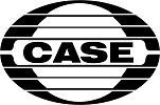
Center for Social and Economic Research
Encyclopedia

CASE scholars and researchers assisted policy-makers during the early years of the Polish and central and eastern European post-communist transition. In the late 1990s CASE’s work began to focus increasingly on the process of European Union accession
Enlargement of the European Union
The Enlargement of the European Union is the process of expanding the European Union through the accession of new member states. This process began with the Inner Six, who founded the European Coal and Steel Community in 1952...
and the challenges facing the CEE region as the transition period drew to a close. Today, CASE works in the areas of macroeconomic and monetary policy
Monetary policy
Monetary policy is the process by which the monetary authority of a country controls the supply of money, often targeting a rate of interest for the purpose of promoting economic growth and stability. The official goals usually include relatively stable prices and low unemployment...
, relations between the EU and its "eastern neighbourhood," labour markets and social policy
Social policy
Social policy primarily refers to guidelines, principles, legislation and activities that affect the living conditions conducive to human welfare. Thus, social policy is that part of public policy that has to do with social issues...
, innovation and competitiveness, and institution-building and poverty reduction
Poverty reduction
Poverty is the state of human beings who are poor. That is, they have little or no material means of surviving—little or no food, shelter, clothes, healthcare, education, and other physical means of living and improving one's life....
. CASE is active in more than 30 countries.
CASE’s Mission
CASE’s mission is to provide objective economic analysis and to promote constructive solutions to the challenges of transition, reform, integration and development in order to improve the socio-economic well-being of societies.Areas of Activity
CASE conducts independent, high-quality research and analysis in cooperation with scholars and institutions from Poland and other countries, advises governments, international organizations and the NGO sector. Center informs and encourage public debate, supports the development and independence of the NGO sector in post-Soviet countries through the creation of affiliates and representational offices.CASE People
Chairman of Supervisory Council – Marek DąbrowskiChairman of Advisory Council – Anders Aslund
President of Management Board – Ewa Balcerowicz
Vice president of Management Board – Artur Radziwiłł
Vice president of Management Board – James Cabot
Publications
CASE helps to inform public opinion through the dissemination of research results in the form of publications.CASE Reports – Popularize the results of select CASE research projects.
CASE Studies and Analyses - also publicize the results of CASE research and advisory projects.The series was initiated in 1993.
Polish Economic Outlook: Trends, Analyses, Forecasts – published since 1999. Presents economic indicators, analyses and forecasts for Poland’s economic development. The release of each new edition is marked by a press conference in which the authors present the latest findings.
BRE Bank – CASE – have appeared since 1992. Each edition contains the essays and presentations of the latest seminar organized by BRE Bank and CASE. The BRE-CASE seminars span various topics and current issues in both the Polish and global economies, with the majority focusing on the development of financial markets and the banking sectors.
E-briefs – are short pieces directed at a general audience in which experts explain the results of their latest research or comment on hot topics related to their area of expertise.
Network
CASE is a co-founder of a regional network of think tanks, which include:- CASE – Belarus,
- CASE – Kyrgyzstan,
- CASE – Moldova,
- CASE Transcaucasus,
- CASE UkraineCASE UkraineCASE Ukraine – is the Ukrainian regional location for the Center for Social and Economic Research , which is an independent non-profit public organization, specializing in economic research, macroeconomic policy analysis and forecasting....
- Institute for Economy In Transition
CASE also cooperates regularly with:
CASE is a participating institution in six external networks:

